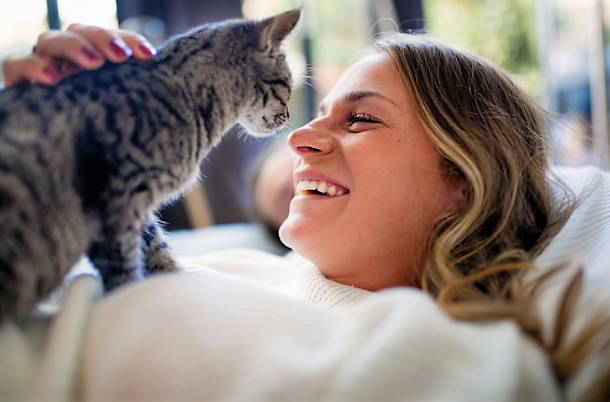If, like me, you are a cat lover and caregiver, it is rather depressing to think that, in general, cat owners care less for their cats than dog owners care for their dogs but the difference depends on cultural attitudes which in turn depends on the country where you live.
To be honest, I've known this for a long time. Many years ago, I looked up what American citizens spent on veterinary services on their cats and dogs. I went to the AVMA website and in quite a shocking revelation, I noticed that dog owners spend a lot more on their dogs then cat owners spent on their cats in terms of veterinary care. This showed a marked difference in emotional connection between people and their pets as this had little to do with disposable income. Although money is no doubt a factor.
And now we have a quite profound study, an important study, published online which compares cat owners and dog owners and their emotional connection with their companion animals.
In essence, they concluded that cat owners really do care less about their cats than dog owners care about their dogs. Although there is a cultural difference depending upon where you live. In this survey they looked at cat and dog owners living in Britain, Denmark and Austria.
They used for different methods of measuring cat and dog owners' concern about caring for their companion animals:
- The Lexington attachment to pets scale (LAPS). This is a well-known test for measuring the emotional connection between owners and their pets.
- Whether owners had taken out a pet health insurance policy.
- How willing were owners to pay for life-saving treatment?
- And the expectation of owners as to veterinary diagnostic and treatment options.
The difference between dog and cat owners was greatest in Denmark. Austria was in the middle in terms of treating cats and dogs differently and there was the least difference between dog and cat owners' attitude towards caring for their pets in the UK.
More dogs and cats were insured in all three countries but there was the least difference in the UK in this respect. The difference was much greater in Denmark.
In terms of expensive life-saving treatment, more dog owners than cat owners were willing to spend over a certain amount in all three countries. However, the difference was most pronounced in Denmark compared to the United Kingdom. The researchers felt that this criteria revealed a clear difference in concern for the welfare of cats and dogs.
In Denmark and Austria, dog owners expected more veterinary treatment options to be available than cat owners. But the difference was not noticeable in this respect in the UK.
The researchers concluded that in all three countries, "people care more about their dogs than their cats but with a clear cross-country variation and a very modest difference in the United Kingdom. Therefore, it does not seem to be a universal phenomenon that people care much less about their cats than their dogs.".
What they're saying there is that there is a clear difference between how people care for their dogs compared to their cats; the former getting better treatment than the latter but this difference in caregiving depends upon cultural attitudes in different countries and in Denmark there was the greatest difference whereas in the UK there was the smallest difference.
My personal opinion as to why people care for dogs better than they do cats is because the dog is a pack animal and they look to their owner as the alpha leader for guidance. This helps to generate a better connection between owner and companion animal. And with that better connection on an emotional level the person is more likely to spend more money on their pet because the emotional bond can be greater.
Conversely, the domestic cat is seen as independent which by the way is a misguided myth in large part, and therefore there is less of a close connection in many homes between owner and cat. This leads to the belief that the domestic cat can be left alone to live their lives and come into the life of their owner as and when they need to. This automatically leads to less caregiving and therefore less expenditure in terms of veterinary care.
There are misconceptions about both dogs and cats. For example, the media: books, movies and advertisements and online adverts et cetera can stereotype the dog as being loyal, affectionate and in need of care and attention. They are a "man's best friend". Conversely, cats are sometimes depicted as aloof, independent or less in need of human companionship. This may portray the concept that they require less care.









